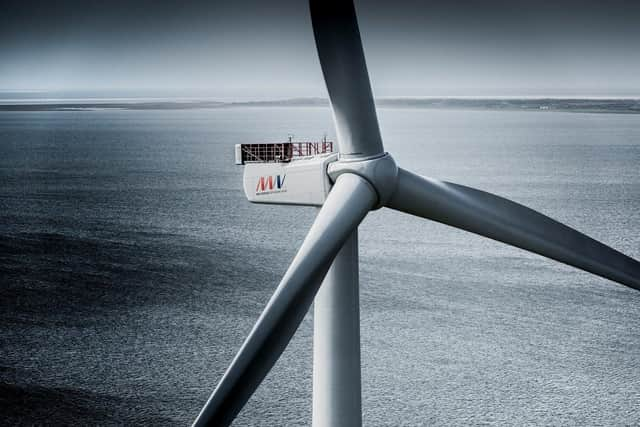Scottish windfarms penalised by energy grid charges, claims MP


SNP MP Alan Brown MP accused the UK government of “mismanagement and ignorance” on the issue which, he said, sees Scotland subject to the highest grid charges in Europe.
During a Westminster debate he called for an overhaul of the grid charging structure as he said it puts Scotland “at a competitive disadvantage to counterparts in England”, urging the UK government to fix the imbalance and encourage renewable energy generation north of the border.
Advertisement
Hide AdAdvertisement
Hide AdHe said that despite Scotland having 25 per cent of Europe’s offshore wind capacity, grid charges make Scottish windfarms 20 per cent more expensive than farms in the south of England.
Since April 2009 operators in the north of Scotland have been charged £21 per kW for high voltage network access – three times the £7 levied on wind farms in southern England.
The MP’s call for an overhaul supports a similar demands from the energy sector which has warned Scotland will not be able to scale up wind farms to meet climate targets without a change in the charging regime.
Currently, Scotland is planning or has installed around 740 MW of energy from offshore wind farms, with the Scottish Government hoping to scale up the infrastructure to between 8GW and 11GW by 2030, when a pledge to reduce carbon emissions by 75 per cent of 1990 levels will need to be met.
Scottish Renewables has called on the UK government and the energy regulator Ofgem to act without delay to reform “the commercial rules of the electricity system” or risk “excessive costs for consumers or a failure to reduce emissions in line with our net zero target.”
Power company SSE has also said charging rates add at least £3 per MWh as a Scottish “premium”, although Ofgem has said “homes and businesses in Scotland have benefited from lower transmission charges as the power is generated closer to where it is delivered.”
Mr Brown said: “For decades, Scotland has been shafted by Westminster mismanagement, but their ignorance to the disparity on electricity grid charges is staggering.
“While companies in the south of England are paid to connect to the grid, those in Scotland have to pay for this service – making the energy a staggering 20 per cent more expensive.
Advertisement
Hide AdAdvertisement
Hide Ad“The UK government should be utterly ashamed of their inaction. Boris Johnson’s government risks facilitating a renewable jobs crisis and their failure to act jeopardises crucial progress in meeting Scotland’s ambitious climate change targets.”
Ofgem is currently considering charging reforms, and a spokesman said it would “continue to listen carefully to industries and other stakeholders’ views as part of our work on network charging reform.”
During the debate, UK energy minister Anne-Marie Trevelyan said charging arrangements were a matter for Ofgem and “governed by the principle the user pays.”
She added: “For the transmission network this means higher charges generated in Scotland as much of the electricity is sent over long distances to centres of demand in the rest of Britain, by contrast homes and businesses in Scotland pay lower transmission charges, this keeps costs down for all bill payers.”
A message from the Editor:Thank you for reading this article. We're more reliant on your support than ever as the shift in consumer habits brought about by Coronavirus impacts our advertisers.
If you haven't already, please consider supporting our trusted, fact-checked journalism by taking out a digital subscription.
Comments
Want to join the conversation? Please or to comment on this article.
